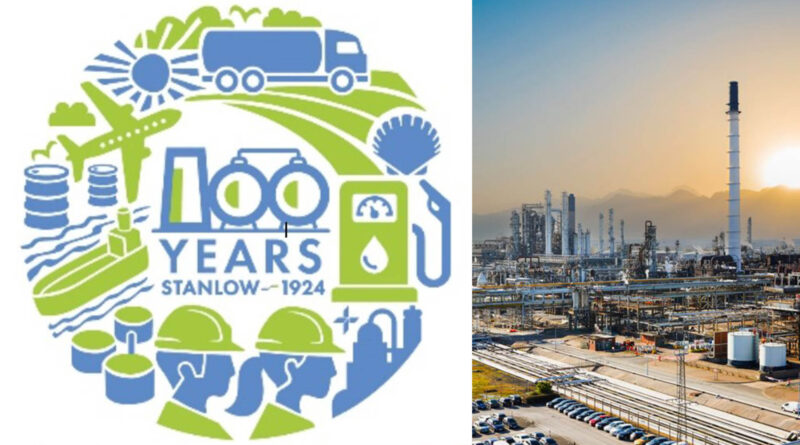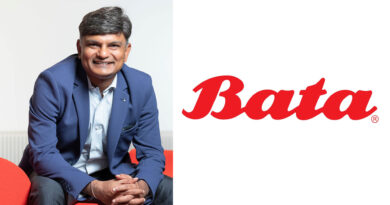Stanlow Celebrates a Century of Powering Britain
- The Stanlow refinery in Ellesmere Port, began producing fuels in 1924 as a bitumen production site.
- Since then, Stanlow has grown to become one of the UK’s largest and most complex refineries, processing 10 million tonnes of crude oil each year, supplying 16% of the UK’s road transport fuels.
- Following its acquisition by Essar in 2011, Stanlow has undergone a major investment programme, with ambitions to become the world’s first low carbon refinery and one of the largest hydrogen production hubs in the world as part of its “redefining energy” strategy.
- EET Fuels is planning a series of events, charitable donations and community celebrations over the course of the summer, to mark the Centenary.
Bengaluru, 10 May 2024: EET Fuels (or “the Company”, formerly Essar Oil UK), which owns and runs the Stanlow Manufacturing Complex, one of the most advanced refineries in Europe, today announces the commemoration of the 100th anniversary of the Stanlow Refinery.
Established in 1924 as a bitumen production site, Stanlow has been a vital pillar of the UK’s energy sector for a century, providing essential products and transportation fuels and supporting both the nation’s and North West’s economic growth.
The Centenary celebration will last several months and will encompass a series of events and initiatives that recognise Stanlow’s significant contribution to the Cheshire community, the North West region, and the UK as a whole. At the same time, the Company will use the Centenary to recognise, celebrate and give thanks to the communities connected to Stanlow while demonstrating its long-term commitment to support these communities long into the future.
EET Fuels will celebrate colleagues, both past and present, and acknowledge the generations of men and women who operated the refinery with dedication, powering growth and innovation across the UK’s manufacturing and transportation industries, and the economy as a whole. The Company will work with local organisations to bring to light the history of Stanlow and share the importance of Stanlow to the UK economy.
Further details of the events, visits and charitable activities will be made in due course.
Prashant Ruia, Chairman of EET, commented:
“For a century, Stanlow has kept Britain moving. We are immensely proud of the refinery’s heritage and its unwavering commitment to supplying high-quality products and fuels safely and reliably. We want to recognise the thousands of colleagues who made this happen. And the Stanlow story is only just beginning. The massive transition strategy we are implementing, with the ambition of making Stanlow the world’s first low carbon refinery, as well as the UK’s leading producer of hydrogen as part of the HyNet consortium, is set to re-position Stanlow and the North West of England for the next 100 years and beyond, ensuring this iconic facility remains at the very heart of the UK’s industrial future.”
A brief history
Stanlow was established by Shell to focus predominantly on blending and distributing imported oil products. In 1924, the plant expanded its operations to include manufacturing bitumen and specialty solvents. Manufacturing has taken place at Stanlow since 1924. The need for refined fuels during World War II led to the production of aviation spirit at Stanlow – a vital component of the war effort. In 1949, recognising the importance of refineries being closer to customer markets, construction began on a fully-fledged crude oil refinery. This refinery was completed in 1952.
Development under Essar ownership
Essar Group acquired Stanlow in 2011. Since then, Essar has nurtured the close ties it has with its communities and invested over $1 billion in improvement initiatives.
Today, the Stanlow refinery remains a key national asset, with over 20,000 litres of crude entering the refinery’s operations every minute. Every year, Stanlow produces over 16% of the UK’s road transport fuels and remains a prominent supplier to some of the North West’s major retail fuel brands and supermarkets, Manchester Airport, leading commercial airlines and the region’s trains and buses.
Stanlow employs over 700 people and a further 700 indirectly as part of the local supply chain. It also offers graduate and apprenticeship opportunities.
Transformation and decarbonisation – the next 100 years at Stanlow
In February 2023, Essar announced Essar Energy Transition (EET) to drive the creation of the UK’s leading energy transition hub in the North West of England at Stanlow. EET plans to invest a total of US$3 billion in developing a range of low carbon energy transition projects over the next five years across its site at Stanlow, between Liverpool and Manchester.
In 2024, Stanlow entered a new century and a new chapter under a new name to reflect its ambitions for the future. In January, Essar Oil UK, the owner of Stanlow, rebranded to EET Fuels to manifest this new chapter as a key part of EET. It is committed to delivering on its ambitious plans to build an energy transition park at its site in the North West, becoming the UK’s first low carbon refinery. Through its state-of-the-art Industrial Carbon Capture and Hydrogen Fuel Switching projects, EET Fuels looks to achieve these ambitions by 2030.
EET Fuels is committed to sustaining the long-term future of Stanlow. It will play a major role in accelerating the UK’s low carbon transformation, supporting the government’s decarbonisation policy and creating highly skilled employment opportunities at the heart of the Northern Powerhouse economy, thereby securing the long-term future of this vital UK infrastructure asset.
In a further testament to Essar’s commitment to the region, the Stanlow site also includes EET Hydrogen (formerly Vertex Hydrogen), the UK’s leading hydrogen production project founded in 2022. EET Hydrogen is developing 1 GW of blue hydrogen for the UK market, with follow-on capacity set to reach 3.8 GW.
As a key component of EET, Stanlow continues to remain a hub of long-term, high-skilled employment, innovation and decarbonisation in the UK, while providing a blueprint for other refiners globally to decarbonise their operations.
Deepak Maheshwari, CEO, EET Fuels, said:
“Stanlow has continuously adapted and innovated over the past century to meet changing social, environmental and market needs and expectations. We are committed to securing the refinery’s continued success for generations to come, while also playing a leading role in the UK’s transition to a lower-carbon economy.”




